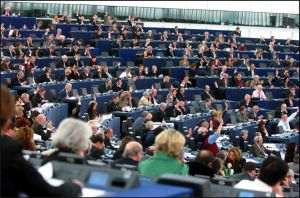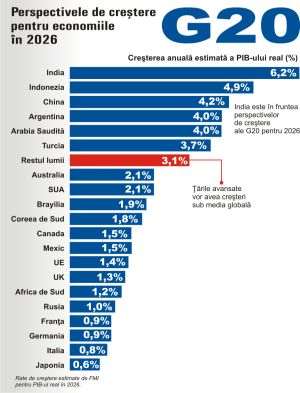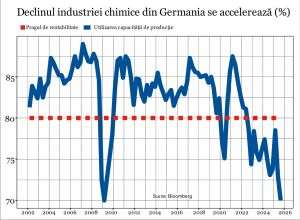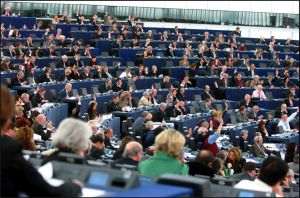March 11th becomes the second event of the dark series that started on September 11th. After New York and Washington, Madrid. International terrorist wanted to prove that they had lost neither their appetite for confrontation, nor their offensive capacity. The "war on terror' initiated by The United States is being retaliated against with the "war on democracy,' that is, the Western world.
I do not think that Spain was chosen as a target for any "ideological' reason in particular. Al Quaeda's references (made in the communique claiming authorship of the attack) to "the historic grudge' between Christians and Arabs that took place in the 11th and 12 Centuries on the territory where Spain lies today are intended to give an "intellectual' and "rational' polish to a barbaric act committed for the sole purpose of destruction. The only reason why the attack was committed in Spain and not elsewhere is that the terrorists found better conditions there to organize and accomplish their horrible mission. Despite the theory that all of the Western world is equally vulnerable to terrorism, there are in fact significant differences between the domestic security systems of the Western countries, between their methods of reacting to terrorist threats, the degrees of professionalism and efficiency of their anti-terrorist forces as well as the different degrees of people's sensitiveness and reactivity from one social environment to the next. Under these circumstances, attacks are organized where favorable conditions are found at a given time.
The attack in Spain would probably have been added to the long list of tragedies caused by terrorism without any other major consequences had it not been for a number of circumstances that gave this case a very special proportion and significance. Naturally, the number of dead and injured was large enough to bring the Madrid attack to international attention and trigger substantial political reactions. However, beyond this aspect, the fact that the terrorist attack occurred shortly before the general elections in Spain changed its significance dramatically and made its consequences gain a completely different proportion. There is not sufficient information to ascertain whether the terrorist attacked was purposely timed to coincide with the elections. There is also not sufficient information to ascertain whether the terrorists hoped for specific political effects or they simply wanted to profit from the electoral moment in order to confuse the authorities pursuing them.
Irrespective of what the terrorists intended, fact is that Europe has experienced the first case of democratic elections being massively influenced by a terrorist act! It was indeed one of the saddest and most dangerous days in the history of The Old Continent.
Post-factum commentaries blamed Premier Aznar for the fact that many Spaniards decided to changed their voting option at the last moment, shortly after the attack. Importantly, Aznar insisted that Basque terrorist group E.T.A. was responsible for the attack even before anyone had had the chance to investigate the matter. It was said that his accusation against E.T.A. was a wrong political move and that The People's Party paid the price for that mistake during the elections. Things, however, are not that simple! Aznar and his party did not need any additional demonstration that E.T.A. was an enemy of democracy. With or without the attack, Spain and the Spaniards already knew what E.T.A. was. Aznar is not an amateurish politician, or a naÎve man or a man driven by impulses. A much more probable explanation is that, hunted by E.T.A. both literally and figuratively, Aznar was influenced by the permanent E.T.A. threat against him. It not easy to have "normal reactions' when you know that terrorists want you dead. Irrespective of the cause of Aznar's attitude, irrespective of whether his attitude was a wrong political calculation or a reaction generated by his own personal tension, Aznar's mistake had major political consequences. The People's Party lost the elections and opened the path for The Spanish Socialist Workers' Party (P.S.O.E.) to take power. The winners, too, were equally surprised by this outcome.
After the elections were over and the results known, a second fundamental political error was made, this time by the P.S.O.E. leader, Jose Luis Rodriguez Zapatero. Already speaking as the future leader of The Spanish Government only hours after the elections, he announced that Spain would immediately withdraw its troops from Iraq. The explanation he gave came as a shock to The U.S., Britain and the other allies: the war in Iraq was a big mistake; the Spaniards did not want this war and therefore had no reason to further participate in it. No matter how inexperienced the your Socialist leader may have, when circumstances throw you to the height of State decisions, that is, to a level of politics where party ideology should be attenuated if not even forgotten in favor of the nation's higher interest and the logic of interaction with the other major international players, an error of such proportion is unacceptable. Zapatero's decision has two dramatic consequences. First of all, it validated the terrorist act as an efficient, "positive' act. The terrorist attack on Madrid led to the electoral victory of a political force that has deserted the coalition fighting "war on terror' in Iraq. In other words, terrorists can now hope to become a major weapon capable of influencing not only the political attitude of a government or another, of a party or another, but of major international players such as Spain. Second of all, at European level, Zapatero's decision is disconcerted with the reactions that most European players had to the March 11th attack. Countries like France, which had been very reticent to the justification of "the war on terror' are about to reconsider their stand. The terrorist threat is nearing their homeland. It is easy to discuss political philosophy when the victims of terrorism are across the Ocean, but very hard to remain actionless when threats knock on your door. France is already in this situation. Spain's decision to exit the coalition that manages the post-Saddam crisis in Iraq complicates things for everyone, and certainly does not make anything simpler for Spain. Spain is an important member of N.A.T.O., a traditionally Atlantic state. The fight against terrorism has become an official N.A.T.O. action, and the new Spanish Government is going to have to manage this interaction from an impossible position generated by the rush announcement of the Socialist leader.
Nevertheless, the consequences of the political errors made in Spain will not remain within Spain's borders as elections in France and Britain could be massively influenced by "the Zapatero effect."








































